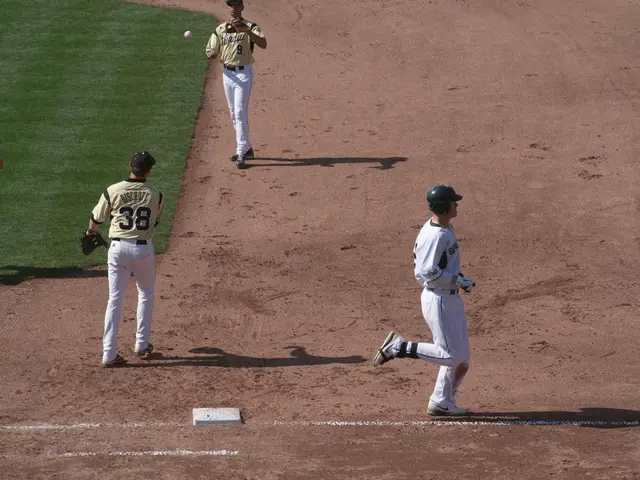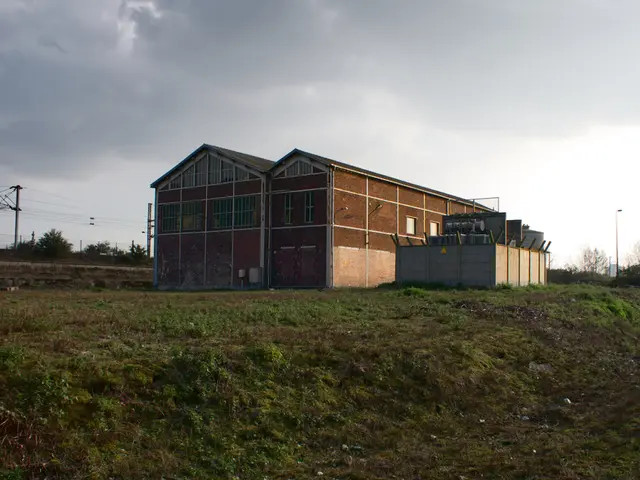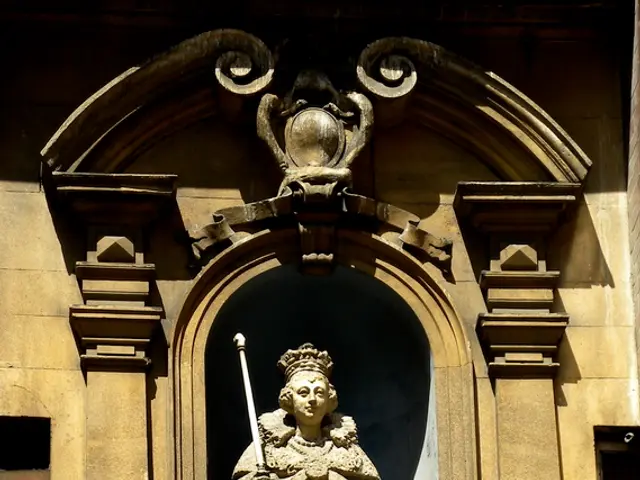West Regensburg Tennis Courts Petition Submitted; Construction Continues Apace
Livid Resistance Against the Weinweg Tennis Court Construction
Peter Rosner, a tenacious gardener, and his allies from Greenpeace, the Nature Conservation Association, and the Left Party deliver a fiery petition to Mayor Maltz-Schwarzfischer, voicing opposition to the construction of three tennis courts at Weinweg. However, the construction is already underway.
With a firm stance, but opposing sentiments, Peter Rosner and his crew present their 541 signatures against the undertaking. Asked for his reason, Rosner states, "We at least want to make our stance known." Mayor Gertrud Maltz-Schwarzfischer accepts the petitions with a casual nod.
The overlooked gardeners
Previously, the environmental committee of the Regensburg city council has approved the construction of tennis courts in the landscape protection area, located on the Danube. The justification for this decision cites an overwhelming demand for playing membership at the Regensburg Tennis Club (RTK) with no other available areas for the courts.
The RTK boasts 800 members and approximately double that in registered guests, much more than the planned tennis courts can accommodate. The city council majority also claims that the project wouldn't significantly impact the cold air corridor that the area resides in. A study, which would investigate this matter further, is omitted from the plans.
What irks Rosner and Thaddäus Dros, the chairman of the small garden association, most is the apparent disregard they've faced – "They simply ignored us," Dros remarks. As neighbors to the proposed courts, the duo is directly surrounded by the inevitable noise pollution.
"The city lacks a holistic heat management plan"
Beyond the tennis court's construction, the threatened deforestation on Lilienthalstraße is an additional point of contention. Rosner emphasizes, "Regensburg seems to be losing pockets of greenery among the construction – we need a comprehensive citywide heat management plan."
Maltz-Schwarzfischer defended the city council's decision, affirming that all factors were considered. She believes that the tennis courts would not significantly strain the city's climate. Initially, the proposed area was a neglected, graveled parking lot. Contrasting this, according to Maltz-Schwarzfischer, the tennis courts, complete with compensatory and ecological reinforcement measures, would eventually heal the area.
Regarding the noise, Maltz-Schwarzfischer mentions, "This is already a sports facility. There's no need for additional neighboring involvement."
Petition to the city council
The debate between the environmental department and mayors Ludwig Artinger and Astrid Freudenstein over the tennis court issue was heated prior to its approval. Artinger himself characterized the discussions as "engaged."
The petition will initially be dealt with by the administration. Afterward, the topic of tennis courts will resurface in the city council – despite the decision being made, and the courts being almost complete.
- Concerned about the disregard for their voices and the potential impact on their peaceful surroundings, Peter Rosner and Thaddäus Dros, from the garden association, seek to make their stance known by opposing the construction of tennis courts, which they contend overlooks a comprehensive heat management plan.
- As avid lovers of sports, Peter Rosner and his allies question the focus on tennis, particularly when the city lacks a holistic heat management plan and considers the ongoing construction of tennis courts at the expense of the local garden, despite its potential negative environmental implications.








